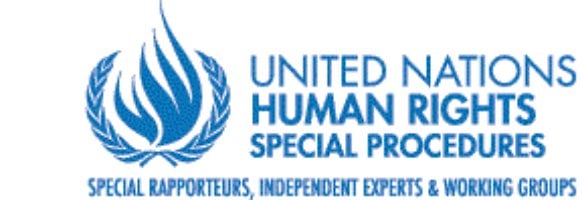UN human rights expert to assess impact of EU policy on poverty
GENEVA (18 November 2020) – The UN Special Rapporteur on extreme poverty and human rights, Olivier De Schutter, will examine the impact of the European Union’s policies on the eradication of poverty in the region during a mission to EU institutions beginning 25 November.
“The European Union represents a beacon of hope for many,” said De Schutter. “It is the most equal region in the world. Taken as a whole, trends for social indicators for the EU-27 have consistently improved over the past ten years.”
“Yet this promise remains unfulfilled for far too many. About 92.4 million people, more than one in five Europeans, were at risk of poverty or social exclusion even before COVID-19 hit, and single-parent households with dependent children were most affected,” he said. “Progress in the fight against poverty, inequality, and social exclusion remains uneven among countries. Against this background, it is important to carefully assess the impacts of budgetary surveillance mechanisms on States’ ability to make further progress in tackling poverty.”
The European Union’s COVID-19 recovery plans are some the most ambitious plans in the world, allocating €672.5 billion in loans and grants to member states as part of NextGenerationEU recovery instrument.
“I plan to examine how this response and other EU macroeconomic policies can be leveraged to work for people who live in poverty, including those in precarious work or facing social exclusion,” De Schutter said.
With adoption of the European Pillar of Social Rights in 2017, the EU demonstrated its commitment to human rights, the Sustainable Development Goals (SDGs), and poverty eradication, he said.
“My fact-finding mission during these trying times provides an opportunity to evaluate its efforts and recommend how the EU can use its harmonizing and coordinating powers to best support people in poverty,” said De Schutter.
The fact-finding mission will include roundtable discussions with representatives of civil society organizations and meetings with officials from the European Commission, the Council of the EU, members of the European Parliament, and representatives of the European Central Bank. Mr. De Schutter also expects to meet members of the Eurogroup and other member state representatives to assess the impact of EU-wide policies on their economies.
“I hope to be able to hold meetings in person with some EU officials, but because of the paramount importance of protecting people during this pandemic, some of the planned consultations may be done virtually,” said De Schutter. “We want to collect testimonies from people across the EU who have experienced poverty, but clearly we would not want to expose them to any health risk.”
The Special Rapporteur will share preliminary observations and recommendations at a press conference on Friday 29 January at 10:30 am at the Press Club Brussels Europe, Rue Froissart 95, Brussels. There will also be the option to join it online.
The final report of the Special Rapporteur will be presented to the UN Human Rights Council in Geneva in June 2021.
Preliminary schedule of the Special Rapporteur’s mission to the EU (subject to change):
25 November – 16 December 2020
Roundtable discussions with civil society organisations ***open to press by request***
4-28 January 2021
Meetings with EU and Member State officials
29 January 2021
End-of-the-mission press conference in Brussels and online ***open to press***
The expert: Mr. Olivier De Schutter was appointed as the UN Special Rapporteur on extreme poverty and human rights by the UN Human Rights Council on 1st May 2020.
The Special Rapporteurs are part of what is known as the Special Procedures of the Human Rights Council. Special Procedures, the largest body of independent experts in the UN Human Rights system, is the general name of the Council’s independent fact-finding and monitoring mechanisms that address either specific country situations or thematic issues in all parts of the world. Special Procedures experts work on a voluntary basis; they are not UN staff and do not receive a salary for their work. They are independent from any government or organisation and serve in their individual capacity.

